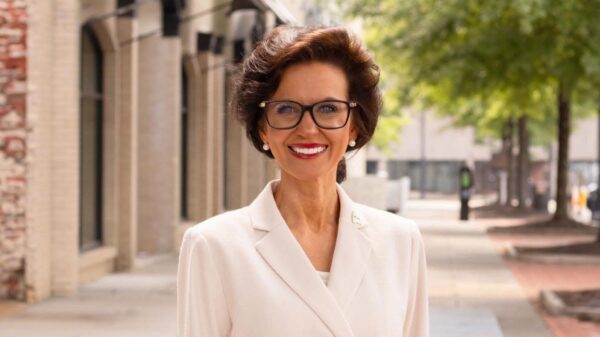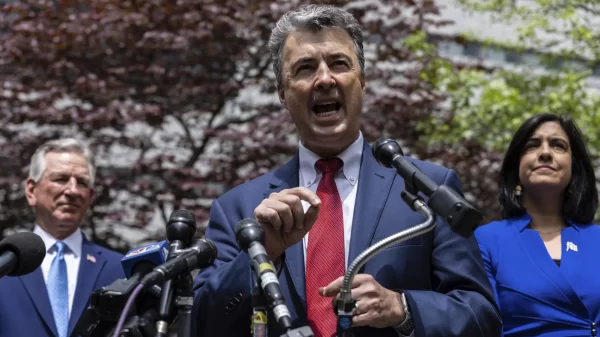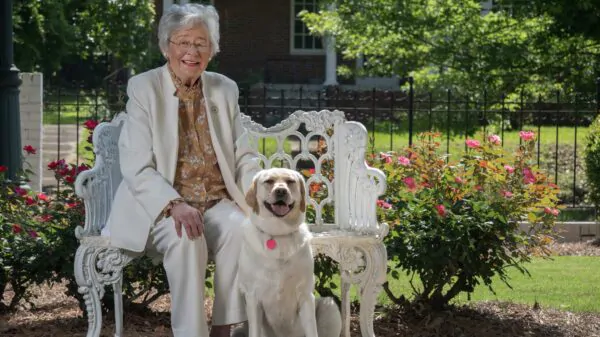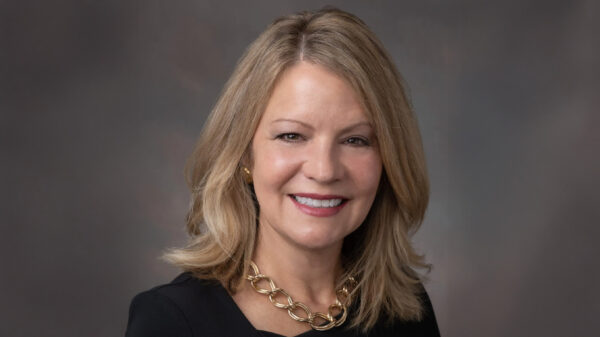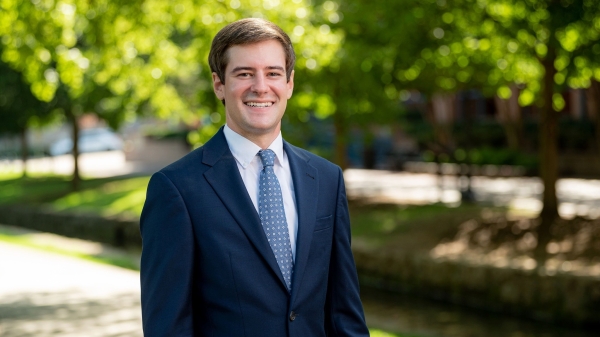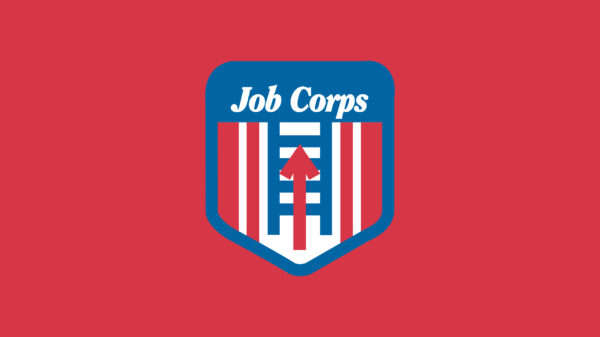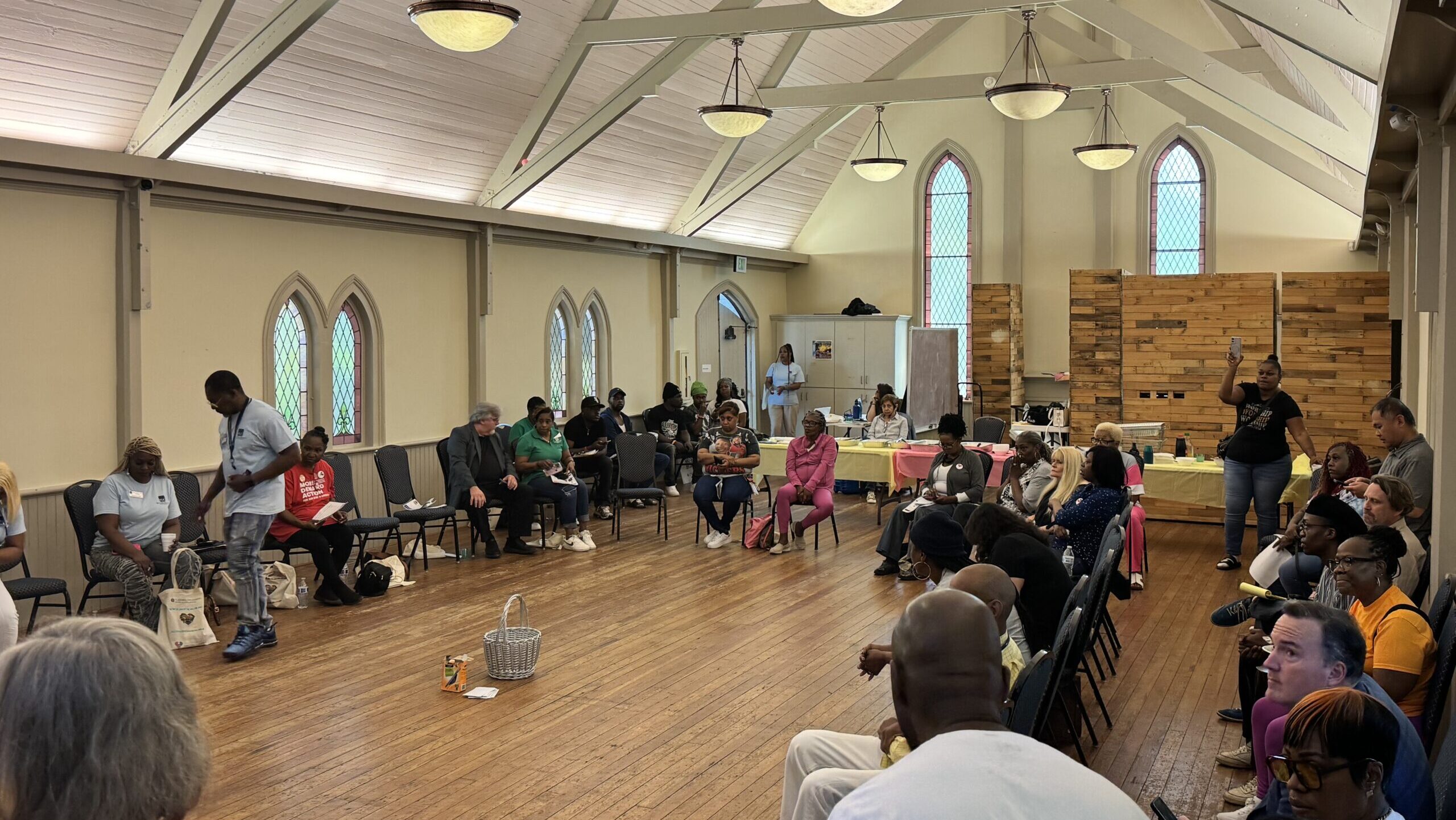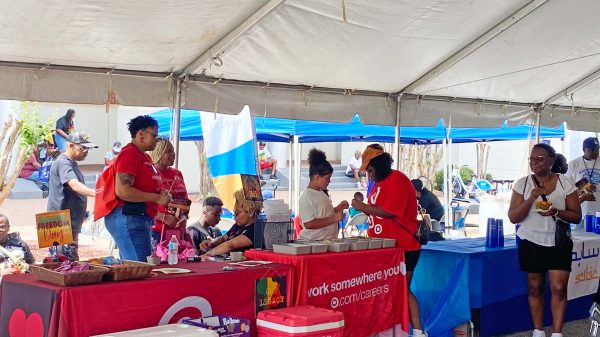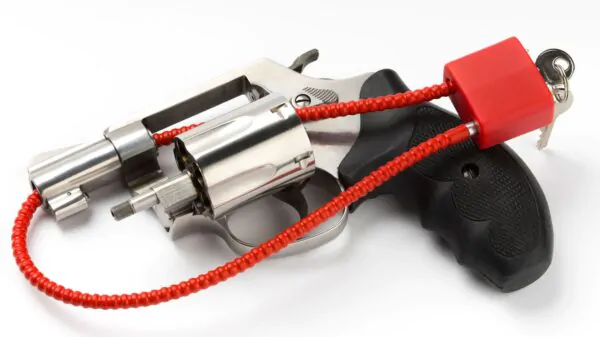Crime Survivors for Safety and Justice, CSSJ — a nonprofit “network of crime survivors joining together to create healing communities and shape public safety policy” — recently held an event in Montgomery where they brought together local gun violence survivors and national public safety advocates to share their stories and raise awareness about victim compensation resources in the Alabama.
Every state in the country has a victim compensation program, whereby victims of violent crimes and their families can receive financial support for certain costs like counseling, funeral expenses and lost wages. However, these programs often lack exposure and accessibility. According to a national survey by the Alliance for Safety and Justice, 96 percent of violent crime victims failed to receive victim compensation in 2022.
“Often survivors are not aware that these programs even exist,” reads CSSJ’s press release announcing the Montgomery event. “But even when survivors are directed toward such relief, the application process can be overwhelming – especially when navigating trauma – and far too many survivors are disqualified due to harmful eligibility restrictions. These processes have a disproportionate impact on communities of color: despite being significantly more likely to be victimized in violent incidents, people of color and other marginalized survivors face barriers in law, policy, and practice that make it even harder to receive help.”
“The Montgomery community event is part of a multi-city tour for the Crime Survivors Speak: Right to Heal – Access to Victim Compensation campaign,” the release continues. “The goal of these events is to amplify crime survivors’ voices, increase public awareness of victim compensation programs, and advocate for policy changes that remove barriers to access.”
One of the speakers at the CSSJ event in Montgomery was Callie Greer, an Alabama woman whose son, Mercury Colley, was killed by gun violence in 1999. Following her son’s passing, Greer founded Mothers Against All Violence in Selma, MAVIS, an organization focused on supporting other Alabama women who have lost loved ones to gun violence.
APR recently spoke with Greer to better understand Alabama’s victim compensation program and its impact on survivors of violent crime and their families. Greer explained that she learned of victim’s compensation following her son’s murder.
“I was not aware of the victim’s compensation department here in the state of Alabama… so it was through the Assistant District Attorney that was handling Mercury’s case that I knew anything about that,” Greer explained. “And she did all of the work and everything, I may have signed the papers or whatever, but I had no idea about it, and several months later a check was received to help pay for funeral expenses. And so, if she had not done that, I would not have known anything about any assistance — and I didn’t get any assistance or help in recovery for counseling or trauma, or anything like that after that.”
Unaware that victim compensation could help cover therapy services at the time of her son’s murder, Greer has only recently begun to seek counseling thanks to CSSJ’s advocacy.
“I truly, truly appreciate what CSSJ has done during the short time I’ve been affiliated with them. Just bringing me into the fold where I’ve actually, for the first time in my life, had real counseling opportunities to even heal from my trauma, not even realizing that I had been traumatized after all of that,” Greer said. “Because that’s not a conversation that we have in [the Black community] a lot and we act as though we don’t have trauma. We’ve lived with it so, so long in our lives in so many different ways that when something happens, we kind of stuff it away and keep it moving. And that’s a part of the reoccurring violence in our community because we don’t deal with trauma, we don’t do counseling, we don’t do healing and we just go on and that anger just continues to build. CSSJ has offered opportunities for us to come in and have these healing circles, these counselors that will help us talk through some of these things.”
Greer made it clear that she wants other families who have lost loved ones to violence to be able to access the same resources she has in order to heal from their trauma. However, she bemoaned the current lack of accessibility which she sees in Alabama’s victim compensation program, especially for people of color like herself.
“Having other mothers, women that have been directly affected by violence, apply for assistance at this traumatizing time in [their] lives, [just] to be denied or approved for $0.00, it’s just even more traumatizing. Now you’re under more stress… It’s not fair, it’s not just, and it’s not a healing process,” Greer said.
“When we look at victim’s compensation in the state of Alabama, we see that there is a disproportionate amount of people of color that are approved for $0.00 or not approved for [victim’s compensation],” she continued.
Greer explained that a victim’s compensation claim in Alabama may be denied if a victim is found to have “contributed to their own death” — meaning that if a victim was suspected of being involved in gang activity or any other activity that is deemed to have contributed to their victimization, their family’s claim can be denied.
“It doesn’t have to be true, they only have to assume that your child or loved one was involved in something else that may have caused this to happen, I mean that’s crazy, you know, when we’re talking about needing funds to bury a child,” Greer said.
Greer also shared anecdotes of murder victims who were left unburied for extended periods of time because their families were denied victim compensation funds meant to cover funeral expenses. She explained that situations like these only serve to add trauma to grieving families and survivors.
“How are you expecting me to fully… recover from this traumatizing event in my life when you’re just continually adding trauma and not giving me any resources to recover from it, not helping me at all?” Greer said.
“We just really are demanding to be recognized as having emotions and feelings and a right to heal and to be whole and to feel fully in all areas, wherever we need healing at. We should have the right to do that. You’re saying you’re gaining money or raising money or being funded money for these opportunities, then we should have access to them, fully,” she added.
One of the specific barriers which Greer would like to see reformed is the timeframe within which victims and families are required to apply for compensation. Right now, victims or their families must apply for victim compensation within a year of the event — whether that be a murder, an assault, or an instance of domestic or sexual abuse. Greer noted that many victims are still recovering during that period, and may be unable or unwilling to apply for compensation so soon after being traumatized.
“[We need] more time to apply for assistance. They give you a year. I mean when you think about it, when I think about it, in that year it was six months before I even accepted the fact that my son was dead,” Greer said.
Greer is not alone in advocating for such reforms. APR also spoke with Aswad Thomas, CSSJ’s national director — who is himself a survivor of gun violence — to better understand what specific policy changes advocates would like to see implemented in Alabama’s victim compensation program.
“[Victim compensation] is a good program in theory,” Thomas explained. “But what we’ve noticed this past decade, especially even more now this past year and actually these past few weeks, is that while this program exists across the country as it does in Alabama, the majority of crime victims are unaware of the program.”
“So that’s one barrier: that most victims actually are unaware of the program… The policies that exist in the state programs are also a barrier,” Thomas continued. “In Alabama, in order to be eligible for the victim compensation program, you’ve got to file a police report within 72 hours of being a victim. And when survivors hear that, they’re so shocked. You know, think of the experiences of a domestic violence victim or sexual assault survivor, many of those victims don’t even tell anyone.”
Echoing Greer, Thomas also noted the challenges posed by the one-year time limit for filing a victim compensation claim in Alabama.
“Now you only have one year to file a claim after becoming a victim, and that’s also a barrier because most people are still unaware of the process,” he stated. “A lot of people don’t even meet the time limit threshold that exists.”
“There are some other policy barriers. In Alabama, you have to fully cooperate with law enforcement throughout the entire criminal justice process [to be eligible for victim compensation],” Thomas explained. “Especially for victims in communities of color, there isn’t a strong relationship between community members and law enforcement and the justice system. And so, in order for you to get access to funeral or burial expenses, that family has to cooperate with law enforcement. So that’s just another barrier that exists.”
Thomas also spoke to Greer’s concerns about compensation being regularly denied due to the assertion that an individual contributed to their own victimization.
“For some victims, there’s a police report, a police report that says this 21-year-old male was shot and killed on this block in this neighborhood, he’s affiliated with a gang, for example, and that this was a gang involved shooting. That’s on the police report,” Thomas continued. “That information often goes to the victim compensation office and the claims analyst. And so we’ve heard stories across the country [where] people are deemed that they contributed to their own victimization, and there’s a policy that you can’t contribute to your victimization. So claims often get denied because of the contributory clause that exists as well.”
Thomas hopes that CSSJ’s advocacy can help to address each of those barriers.
“I think we’ve changed victim compensation laws in about 12 states. We are currently supporting other states to change their reforms as well, and it’s very similar to what we want to do in the state of Alabama in the legislature next year,” he said. “One barrier is the time limit, the reporting time limit that you have to report a crime to a law enforcement agency within 72 hours. We’re hoping we can get that extended. In some places we’re able to extend that to five days, in some places we were able to extend that to two weeks.”
Thomas also said that CSSJ hopes to extend the time limit to file a victim compensation claim in Alabama from one year to three years, and perhaps even further in the future.
“The majority of the states across the country, compared to Alabama, have a clause, whether it’s two years, three years, or five years or seven years. So we also want to extend the time where a claim can be filed,” Thomas said. “Hopefully in the state of Alabama we can get it to three years by next year and then continue improvement.”
Thomas also said that survivors in Alabama are pushing to reform the victim compensation clause requiring complete cooperation with law enforcement.
“How can you deny someone from accessing the program, just because you don’t cooperate?… We’re hoping to remove that barrier or even change what cooperation looks like. Is it, you know, at your bedside, at the hospital when you’re fighting for your life? In that situation, you aren’t able to cooperate. If you are fleeing a domestic violence incident, you don’t have time to go to the police station,” Thomas said.
Additionally, Thomas wants to see Alabama’s victim compensation expense cap raised. Currently, applicants can be rewarded at most $15,000 dollars through Alabama’s victim compensation program. Meanwhile, some other states have caps ranging anywhere from $45,000, to $50,000, to even $75,000 in maximum compensation for victims and their families.
“The maximum award cap is very low compared to a lot of other states,” Thomas emphasized.
Thomas also pointed to a lack of adequate resources and staffing as key factors which contribute to the low public awareness of victim compensation opportunities in Alabama. Additionally, Thomas pointed out Alabama’s lack of “victim compensation navigators” — dedicated workers who help applicants move through the complicated claims process in other states.
In general, both Thomas and Greer expressed a desire for the state of Alabama to engage in more proactive outreach when it comes to helping victims attain the compensation funds they are supposedly entitled to.


